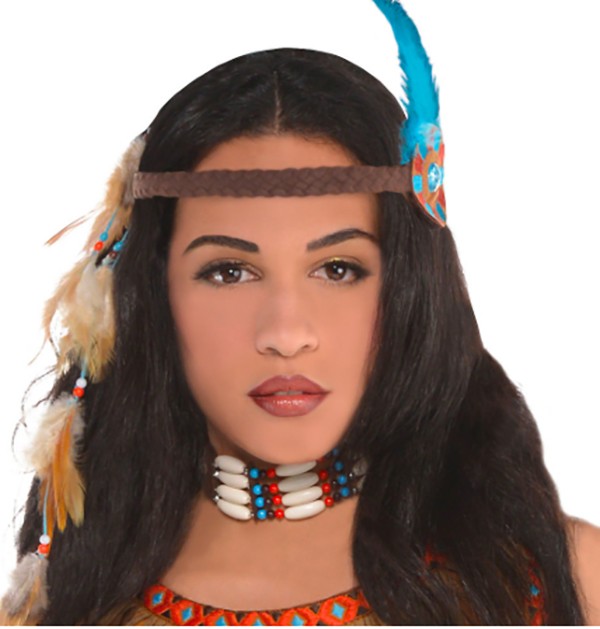October is a month of terror.
Aside from the pumpkin spice, the candy corn, and the premature Christmas tracks, there is a real terror we never look in the eye.
That terror is that of the erasure of Native culture and history that Native people are reminded of yet again, and that terror is violence.

Take last week for, example. Yandy.com, an online apparel retailer, promoted and immediately removed the Brave Red Maiden costume from its website after receiving criticism on social media for sexualizing the characters in The Handmaid’s Tale. Users on social media were quick to express their anger over the costume, and Yandy soon released a statement to claim it was not their intent to offend.
While the costume based off of a fictional dystopian narrative is no longer sold in their online store, Yandy, as other costume markets, continues to carry “sexy Indian costumes.” In 2017, Yandy’s chief financial officer Jeff Watton said that the company made $150,000 per year from the Native American “costumes” and would not stop selling them because they were very profitable.
Unfortunately, Yandy and other similar companies will continue to profit from the exploitation and trauma of the Native American community, in particular native women, despite native communities calling for these products to be taken down. But these calls are not answered by the public — by us — and these recent events have only further shown that “selective” feminism, which is exclusionary and best described as just maintaining white supremacy, would rather prioritize and protect the image of fictional characters than recognize how the fetishization of indigenous women contributes to the sexual violence that they experience.
According to the U.S. Department of Justice and many federal government studies, Native American women have the highest rates of rape and sexual assault — and are more likely to experience sexual violence — than other women in the U.S. Ninety-seven percent of the sexual violence committed against Native women has been by non-Native persons. However, tribal courts for many decades have not been able to prosecute crimes committed by non-Native people. Often, rape cases were passed to the U.S. Justice Department, but there wasn’t much hope that the cases would be investigated. In 2011, 65 percent of rape cases passed to the U.S. courts were, in fact, not prosecuted at all. A provision in the Violence Against Women Act in 2013 gave some jurisdictional authority to tribal courts to prosecute these crimes committed by non-Native people, but this jurisdiction was still limited. Many tribal courts couldn’t exercise this jurisdiction because of the regulations under the act that require funding that tribal criminal justice systems do not have.
So how does a retail company based in Arizona have anything to do with this sexual violence against Native women? These “costumes” are more than just fabric put together that someone believes they innocently wear one day of the year. They support the hyper-sexualization of Native women’s bodies. This fetishization contributes to rape culture. It enforces the idea that Native women can be commodified, which not only points to the way that people who perpetrate this violence think, but also the normalization of a legacy of violence against Native people’s bodies and lands by settlers.
Yandy is not an isolated company. It is one of many companies that use aspects of Native culture for the sole purpose of profit. From clothes associated with Native culture to sage, dream-catchers, and other items incorporated into non-Native popular culture, these pieces contribute to the idea that Native culture is a monolith and is something of the past that can be “borrowed” for non-Native consumption. This erases the lived experiences of Native people today, whose lands, water, and other resources continue to be stripped from them. Additionally, these practices contribute to growing rates of Native women who experience sexual violence and are going missing.
As we enter October, we must remember that this is an ongoing trauma and re-trauma that Native people are experiencing. At the same time, Native people are engaging in an ongoing resistance that is often overshadowed, or in actuality, ignored in the mainstream coverage of activism and social justice work. The attention that Yandy gave to the backlash of the The Handmaid’s Tale costume shows that we need to continue to challenge feminist movements, as they have historically been exclusionary to black, brown, and Native struggles, and this past week has shown that it hasn’t changed. If feminism does not include indigenous sovereignty, it is synonymous to white supremacy.
Aylen Mercado is a brown, queer, Latinx chingona Memphian pursuing an Urban Studies and Latin American and Latinx Studies degree at Rhodes.






